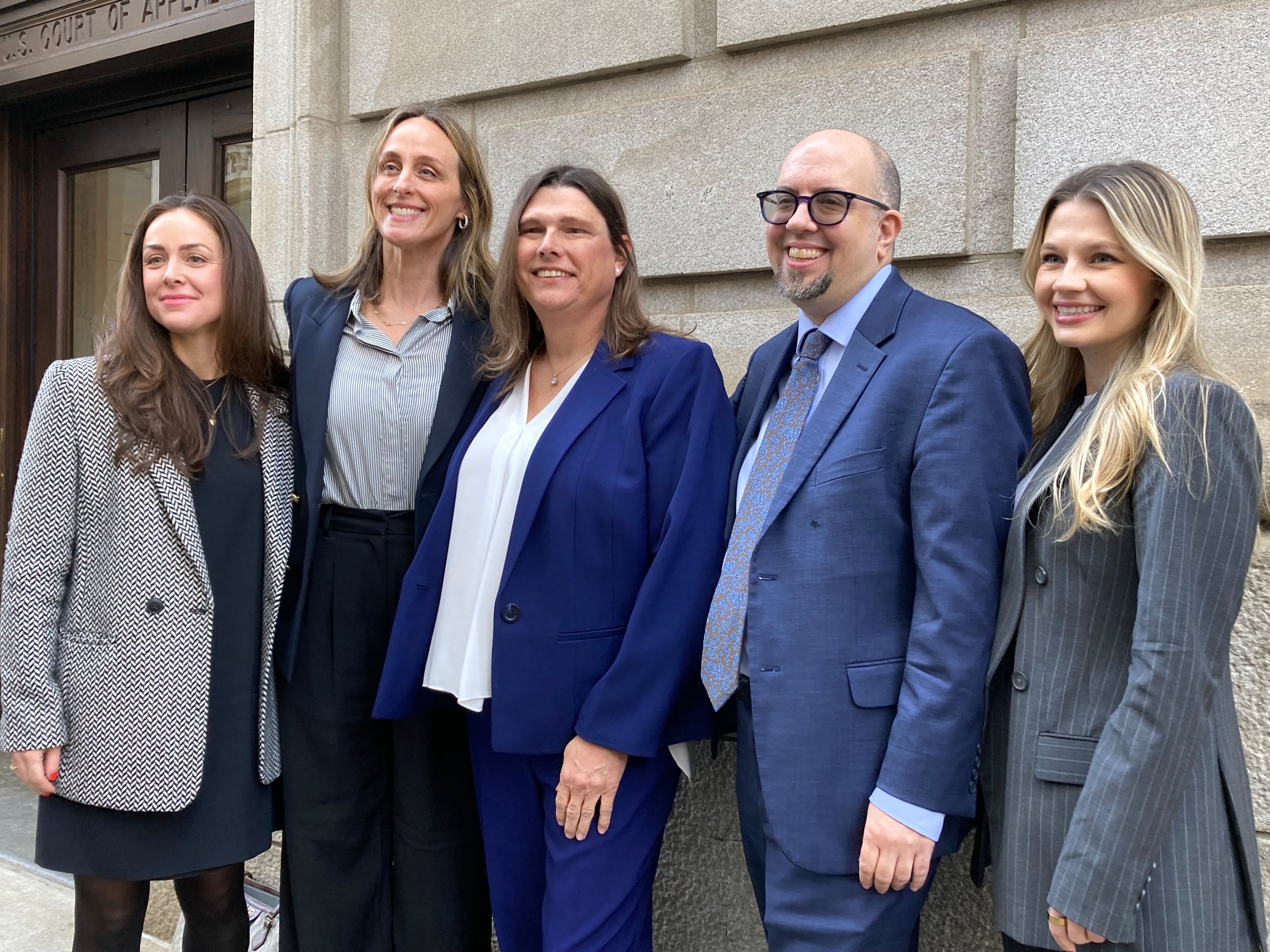Georgia trans rights case ruling called a step back for ‘human dignity’

A heavily divided federal appeals court has greenlit a Georgia county’s employee health care plan that doesn’t cover certain gender-affirming surgeries, in what one dissenting judge describes as a step back for “basic human dignity.”
Tuesday’s ruling by the full 11th U.S. Circuit Court of Appeals is a blow to transgender Houston County sheriff’s deputy Sgt. Anna Lange in her bid to hold the county and its sheriff liable for violating her civil rights. It also has wider implications.
The decision, binding across Georgia, Florida and Alabama, creates lower-class citizens of transgender people, 11th Circuit Judge Nancy Abudu wrote in a scathing dissent of her colleagues’ majority opinion. She said the county’s plan clearly violates Civil Rights Act protections against workplace discrimination.
“Our role is to ensure that, regardless of religious, political, or other ideologies, the law applies equally to all,” Abudu wrote. “The majority’s decision, unfortunately, undermines that goal.”
Lawyers for the county did not immediately respond to questions about the ruling.

Eight of the court’s judges found in the county’s favor, saying they had no choice under recent precedent from the U.S. Supreme Court. One of them, Judge Robin Rosenbaum, said the situation is regrettable.
“The record compellingly reveals that Houston County precludes sex-affirming surgeries for discriminatory reasons,” Rosenbaum wrote in a concurrence. “Despite this, our decision today leaves Lange with no remedy for her disparate-treatment claim.”
Writing for the court’s majority, Judge Andrew Brasher said the county plan itself does not discriminate on the basis of sex. He said it excludes coverage for dozens of things, including gender-affirming surgeries for trans people, regardless of an employee’s gender.
“The County’s policy does not pay for a sex change operation for anyone regardless of their biological sex,” Brasher wrote. “The plan declines to extend a benefit — namely, coverage for a sex change operation. And that benefit is declined to everyone.”
Brasher relied heavily on the Supreme Court’s June decision in a separate case, U.S. v. Skrmetti, that upheld a Tennessee law blocking certain treatments for gender dysphoria in children. The majority said the Supreme Court rejected in that case the arguments Lange presents in her own suit.
The decision doesn’t end Lange’s case against the county.
Shayna Medley, one of Lange’s lawyers, said the county can still be held liable for applying its policy in a discriminatory way. Medley said Lange’s legal team is considering its next steps in the case.

“This is certainly a disappointing ruling both for Sgt. Lange and for transgender employees in Georgia, Florida and Alabama,” Medley said Wednesday.
Tuesday’s decision replaces an earlier 2-1 ruling in Lange’s favor by a panel of 11th Circuit judges who agreed with a federal judge in Macon that the county unlawfully discriminated against Lange by denying coverage for certain gender-affirming surgeries. The county was ordered to cover such treatment.
The panel’s May 2024 decision was the first ruling of its kind, according to the Transgender Legal Defense and Education Fund, which helped Lange in the case.
Now, the tables have turned.
If the full 11th Circuit decision stands, Lange’s case returns to the Macon judge to determine whether the county’s policy violates the Equal Protection Clause of the U.S. Constitution, among other things. She could take the case to the Supreme Court.
Lange has been a sheriff’s deputy in Houston County almost 20 years. She and her lawyers have criticized the county and its sheriff for allegedly spending more than $2 million fighting the case, saying gender transition surgery “costs orders of magnitude less.”


